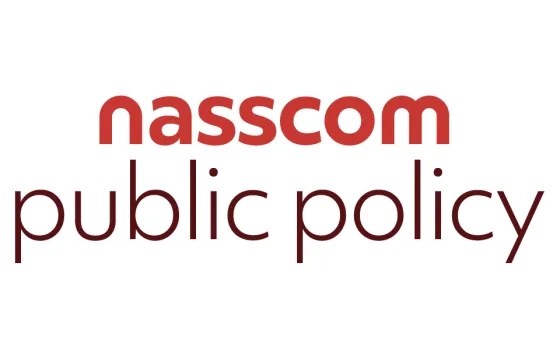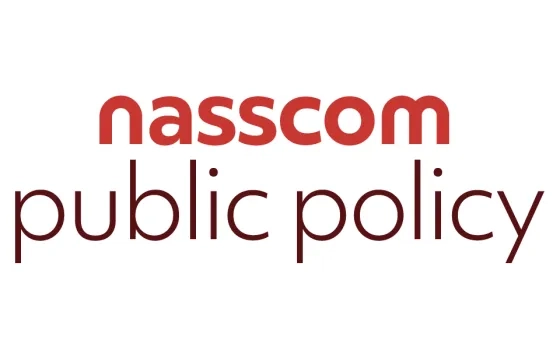As you may be aware, Ministry of Finance (MoF) in June 2022 issued Circular No. 12 of 2022 (Circular) providing certain clarifications regarding implementation of provisions prescribed under S. 194R of the Income Tax Act, 1961 (IT Act). S. 194R provides for Tax Deduction at Source (TDS) @ 10% by a person providing any benefit or perquisite to a resident arising from business or profession.
Based on feedback received from the Industry, we have made a submission to MoF highlighting the following issues being faced by the Industry while complying with provisions of S.194R of IT Act.
Expanded scope of S. 194R
The Memorandum to Finance Bill, 2022 highlighted that the intent of introducing S. 194R is to deduct tax on benefits or perquisites which are taxable under S. 28(iv) of IT Act. However, the Circular, through Question 1, has expanded this position and require taxpayers to deduct tax whether or not the benefit/ perquisite is taxable in the hands of the recipient under S.28(iv) or other sections like S. 41(1), or be not taxable all together. The Circular also expands the scope to cover benefits in the form of cash, which seems to be contrary to the intent of S.194R and erstwhile judicial precedents in the context of S. 28(iv) to cover only non-monetary benefit or perquisites.
Suggestion – We have requested MoF to clarify that the scope of S.194R remains the same as understood in its original form, i.e., being applicable to non-monetary benefit or perquisite arising from business or profession by the recipient [as required under S. 28(iv)].
Treatment of promotional goods/services
The Circular, through Question 4, clarifies that no tax is required to be deducted under S. 194R on sales discount, cash discount and rebates. There may be instances where a taxpayer gives free goods/services as a promotional offer with an intent to monetise such offerings after the offer period. For e.g., a company provides certain software/ services to a customer free of cost for first 3 months (promotional period) and start charging for software/ service after the end of promotional period (i.e., after end of 3 months). Similarly, an equipment (say, printer) may be given free of cost, with the object that the recipient will buy consumables (like toner) required to run such equipment from the taxpayer.
In such circumstances, the free promotional goods/services offered for the initial period is not per-se benefit/perquisite for the recipient but is only a business model which helps in creating market for the products being provided with a commercial objective of recovering revenue subsequently.
Suggestion – We have requested MoF to exclude such promotional offers from the ambit of S. 194R as these offers are made with the intent to advertise and promote goods/services and not to provide any benefit or perquisite to the recipient.
Whether waiver of loans, interest waiver, expense waiver or bad debts amounts to benefit/perquisite under S.194R?
The Circular, through Question 3, clarified that the amount representing principal loan that has been waived off by a bank under one time settlement scheme would constitute benefit or perquisite on which TDS under S.194R would be applicable. In this regard, it is pertinent to note that such waivers or bad debts are on account of business and commercial requirements taking into consideration the financial inability of the person who is liable to repay such sums.
The IT Act already contains anti abuse provisions like domestic transfer pricing provisions and S. 40A(2) to ensure that no excessive deductions are claimed by one party. Further, the objective of introducing S. 194R is to tax benefits and perquisites in the hands of the recipient which are otherwise not getting covered under the tax net. Where such interest, expenses etc. have been waived off, the taxpayer who incurred such interest, expenses etc. will have to offer the same for tax purposes, which will automatically result into higher income for the taxpayer and would be subject to tax.
Accordingly, considering such waiver of interest or expenses as benefit or perquisite for purposes of S. 194R will only create additional administrative burden for taxpayers without any consequential increase in tax collection. Similarly, debts waived off will also be subject to tax under S.41 of IT Act and hence, it should be outside the purview of S. 194R.
Suggestion – MoF should clarify non-applicability of TDS under S. 194R in cases where amounts of loan, interest, expenses, or debts have been waived off, since the same are taxable under other provisions of the IT Act.
Whether promotional credits which can be adjusted against purchase of goods/ services in future amounts to benefits/perquisites?
The Circular, through Question 4, clarifies that no tax is required to be deducted under S.194R on sales discount, cash discount and rebates.
There may be instances where a taxpayer gives promotional credits to the buyer for agreeing to purchase/subscribing to any goods/services and such credits are adjusted against the value of goods/service in future. For e.g., a company gives credit of say INR 1,000 on subscribing to a service and the same can be adjusted against the value of service in future, say INR 10,000 (i.e., customer will only pay INR 9,000). The promotional credits are offered on agreement/subscription to purchase goods/avail service, which should qualify as a discount against future purchases and hence, should be excluded from the ambit of S. 194R.
Suggestion – We have requested MoF to exempt such promotional credits from the ambit of S. 194R as these offers are discounts.
Whether reimbursement of out-of-pocket expenses, where invoice is not in the name of the service recipient, amounts to benefit/perquisite?
The Circular, through Question 7, clarifies that in case of any expense where invoice is in the name of service recipient (X), paid by service provider (Consultant) and subsequently reimbursed by service recipient (X), then such reimbursement is exempted from being a benefit or perquisite. In this regard, we would like to highlight that there are practical challenges in obtaining invoice in the name of service recipient (X). For E.g., where the service provider carries out the booking for travel and accommodation in its own name and later claims the reimbursement of such expenses. It is pertinent to note that such expenses are incurred merely to enable the service provider to render services and are not for the benefit of the service provider. Hence, reimbursement of such expenses by the recipient should not be construed as if the liability of the service provider is met by the service recipient.
Suggestion – MoF should clarify that any expense incurred by a service provider (Consultant) on behalf of or wholly or exclusively for rendering services to service recipient (X) are exempt from TDS under S.194R, irrespective of the fact that invoice is obtained in either party’s name.
Characterisation as a benefit should not get impacted by who is incurring the expense in the first place, so long as it is ultimately borne by the service recipient. Further, name of the party on the invoice should not be the sole criteria for determining whether the expenses incurred would get covered within the ambit of benefits or perquisites.
Events and Conferences
The Circular, through Question 8, clarifies that dealer conferences for select dealers/ partners, who have achieved targets, can be construed as a benefit under S. 194R. Further, the Circular also provides that expenses attributable to leisure component or expenditure on participants for days which are on account of prior stay or overstay beyond dates of conference would also be construed as benefit under S. 194R. In this regard, it is important to note that companies organise event/ conferences for their dealers/ partners/ customers for their own benefit/ promotion of business. The intent is not to provide benefit to the attendees. Further, what constitutes leisure component is very subjective and leaves the arranger of conferences in a dilemma as regards identifying and computing the leisure component. Further, ‘prior stay’ and ‘overstay’ should be construed with reference to the schedule of conference and other logistics, rather than strictly confining the same to the dates of conference.
Suggestion – MoF should exempt such events and conferences from the ambit of S. 194R. Alternatively, government should provide clarity on leisure stay/prior stay/overstay.
Whether reimbursement of out-of-pocket expenses subjected to TDS under other sections of IT Act such as S. 194C or S.194J amount to benefit/perquisite under S.194R?
Circular 715 dated 8-8-1995 issued by CBDT clarified that TDS under S. 194C and S. 194J have to be made from gross amount of the bill, including reimbursements for actual expenses. In such instances, the amount of reimbursements included in the invoice, are already subjected to TDS under S.194C or S. 194J, as may be applicable, thereby leading to double taxation.
Suggestion – We have requested MoF to clarify that TDS under S. 194R will not apply in cases where any other specific section of Chapter XVII-B of IT Act is attracted. This will help in resolving potential litigation issues.
Without prejudice to the above, given the significant challenges which Industry foresee in implementation of S.194 we have also requested the government to provide clarity on the above issues. Till such time, we request the government to defer applicability of S.194R. This will provide the Industry with time to analyse the provision and make necessary changes in ERP systems, contractual arrangements, etc.
We hope you will find the update useful. We will keep you posted on further developments in this regard.










